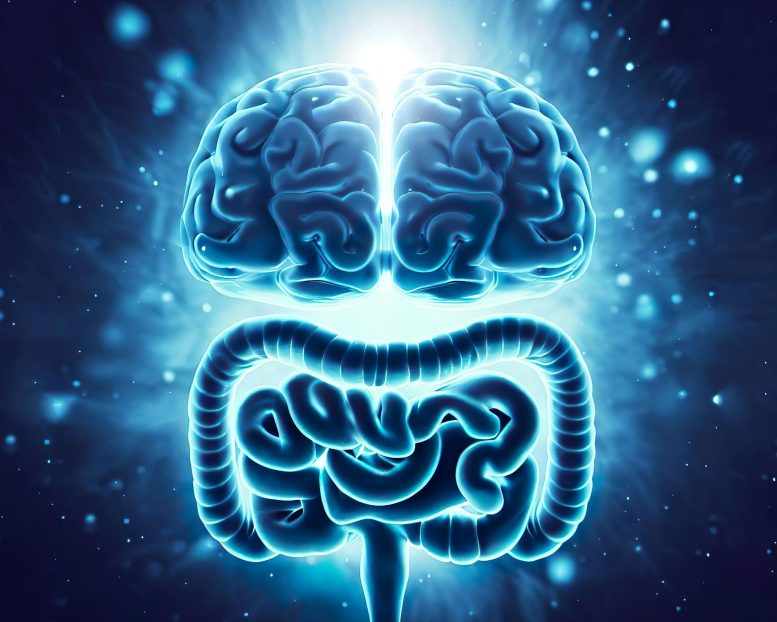
A UCLA Health study explored the traits of resilient individuals, discovering significant neural activities in the brain regions for cognition and emotional regulation, and healthy gut microbiome activities.
The research highlighted differences in microbiome metabolites and gene activity, indicating lower inflammation and better gut health in resilient people compared to less resilient individuals. This comprehensive approach may lead to interventions that enhance resilience to stress, possibly preventing various health issues.
Resilience and Health
Resilient people exhibit neural activity in the brain regions associated with improved cognition and regulating of emotions, and were more mindful and better at describing their feelings, according to a new University of California, Los Angeles Health study. The same group also exhibited gut microbiome activity linked to a healthy gut, with reduced inflammation and gut barrier.
For the study, rather than examine microbiome activity and composition linked to disease conditions – like anxiety and depression – the researchers wanted to flip the script and study the gut microbiome and brain in healthy, resilient people who effectively cope with different types of stress, including discrimination and social isolation.
“If we can identify what a healthy resilient brain and microbiome look like, then we can develop targeted interventions to those areas to reduce stress,” said Arpana Gupta, PhD, senior author and co-director of the UCLA Goodman-Luskin Microbiome Center. This is believed to be the first study to explore the intersection of resiliency, the brain, and the gut microbiome.
Research Findings on Brain and Gut Health
Gupta and her team focused on methods to cope with stress because research has shown that untreated stress can increase the risk of heart disease, stroke, obesity, and diabetes. While stress is an inevitable part of life, studying how to handle stress can help prevent developing diseases.
To conduct the study, published in Nature Mental Health, the researchers surveyed 116 people about their resiliency – like trust in one’s instincts and positive acceptance of change – and separated them into two groups. One group ranked high on the resiliency scale and the other group ranked low. The participants also underwent MRI imaging and gave stool samples two or three days before their scans.
The researchers found that people in the high resiliency group were less anxious and depressed, less prone to judge, and had activity in regions of the brain associated with emotional regulation and better cognition compared to the group with low resiliency. “When a stressor happens, often we go to this aroused fight or flight response, and this impairs the breaks in your brain,” Gupta said. “But the highly resilient individuals in the study were found to be better at regulating their emotions, less likely to catastrophize, and keep a level head,” added Desiree Delgadillo, postdoctoral researcher and one of the first authors.
The high resiliency group also had different microbiome activity than the low resiliency group. Namely, the high resiliency group’s microbiomes excreted metabolites and exhibited gene activity associated with low inflammation and a strong and healthy gut barrier. A weak gut barrier, otherwise known as a leaky gut, is caused by inflammation and impairs the gut barrier’s ability to absorb essential nutrients needed by the body while blocking toxins from entering the gut.
Future Directions in Resilience Research
The researchers were surprised to find these microbiome signatures associated with the high resiliency group.
“Resilience truly is a whole-body phenomenon that not only affects your brain but also your microbiome and what metabolites that it is producing,” Gupta said. “We have this whole community of microbes in our gut that exudes these therapeutic properties and biochemicals, so I’m looking forward to building upon this research,” Delgadillo said.
The team’s future research will study whether an intervention to increase resilience will change brain and gut microbiome activity. “We could have treatments that target both the brain and the gut that can maybe one day prevent disease,” Gupta said.
Reference: “Stress-resilience impacts psychological wellbeing as evidenced by brain–gut microbiome interactions” by Eric An, Desiree R. Delgadillo, Jennifer Yang, Rishabh Agarwal, Jennifer S. Labus, Shrey Pawar, Madelaine Leitman, Lisa A. Kilpatrick, Ravi R. Bhatt, Priten Vora, Allison Vaughan, Tien S. Dong and Arpana Gupta, 21 June 2024, Nature Mental Health.
DOI: 10.1038/s44220-024-00266-6